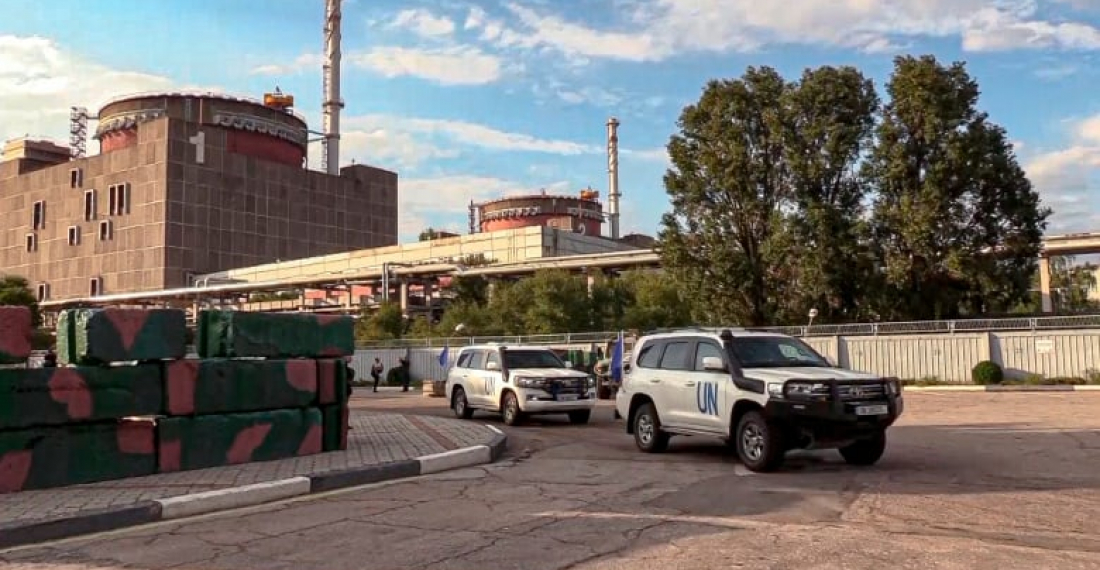Ukrainian President Volodymyr Zelensky supports a demilitarised zone around the Russian-occupied Zaporizhzhia nuclear power plant in Ukraine. The International Atomic Energy Agency (IAEA) reported on Tuesday (6 September) that "interim measures” and a nuclear safety zone around the nuclear power plant are needed to prevent a nuclear accident. Ukrainian authorities stated that the city where the nuclear power plant is located was still being bombed on a daily basis.
The IAEA delegation has been investigating the situation in Zaporizhzhya. Damage was observed on the nuclear power plant, including to the nuclear fuel building and the solid radioactive waste storage facility.
“There is an urgent need for interim measures to prevent a nuclear accident arising from physical damage caused by military means,” the IAEA said. The nuclear safety zone should prevent fighting in the area surrounding the plant. The United Nations has for some time been calling for the area to be demilitarised.






